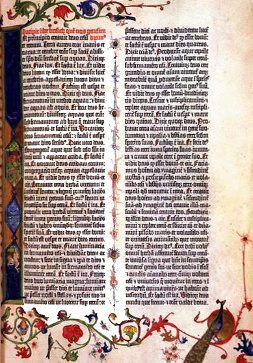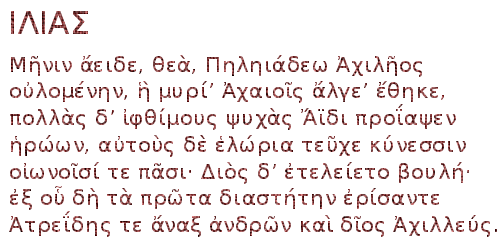| Tikalon Blog is now in archive mode.
An easily printed and saved version of this article, and a link
to a directory of all articles, can be found below: |
|
This article |
| Directory of all articles |
How Many Books?
August 12, 2010
It's amazing how many books have been published. It's probably good that some books are out of print, although these may have served a useful purpose as doorstops or paper weights. The number is especially impressive, since books, until recently, were manufactured products. They were produced on huge industrial-scale machines and shipped via rail and truck to
brick-and-mortar stores, where they would sit until they caught someone's eye or captured someone's imagination.
Today, things are different. Many books are offered in electronic format, and they are more like software than a manufactured product. This makes them easier to produce and distribute. More importantly, it eliminates all the roadblocks that authors used to encounter in getting their books published. It's encouraged me to finish
two novels that I've been writing for a number of years. The publication rate of books will likely accelerate in the next decade as all the
closet writers see an easy path to their dream of being a published author. If your book is destined to be book number
(N+1) in the history of the world, what's the value of
N? That's the question that
Google attempted to answer a few days ago.[1-3]

Gutenberg Bible.
Google is a wonder of the information age, and it's my only search engine. The Google web site offers such diverse things as a simple
language translator and a
patent search engine that I use often. There's also a
Google Scholar search engine that I should use more often, since it eliminates much of the
chaff from the wheat on some searches. And then, there's
Google Books, the start of what might become a
Universal Library on every desktop, and a
lightning rod for lawyers. Since Google is trying to capture the page images of every book in the world, it's no wonder that they're interested in how many books there are, if just from a business standpoint.
Google counts 129,864,880 books, so let's just round up to 130 million. I was surprised at how small this number is, but it's important to know Google's definition of a book
"One definition of a book we find helpful inside Google when handling book metadata is a 'tome,' an idealized bound volume. A tome can have millions of copies (e.g. a particular edition of Angels and Demons by Dan Brown) or can exist in just one or two copies (such as an obscure master's thesis languishing in a university library). This is a convenient definition to work with, but it has drawbacks. For example, we count hardcover and paperback books produced from the same text twice, but treat several pamphlets bound together by a library as a single book."[1]
It's not often that you hear the word,
tome, in conversation, but it's interesting that the Google number includes both the hardcover and softcover versions of the same book. Other than that, Google took due care to eliminate duplicates from their database of books. Google used quite a number of book descriptors, such as publication date, to validate each tome as unique. This was essential, as illustrated by an example proffered by Google - "Lecture Notes in Computer Science, Volume 1234," and "Proceedings of the 4th international symposium on Logical Foundations of Computer Science" are the same book.[1] Google eliminated other items, such as microfilm and audio recordings, from their database. There were eight million microfilms.
How can I end this article without a mention of my favorite book out of these 130 million. It's
Homer's Iliad, a book that was originally not a book at all, but an
oral tradition. As I mentioned in a
previous article (100,000 Digits of Pi, October 10, 2006), The Iliad has 15,693 lines of dactylic hexameter verse of about six words on each line, for an approximate total of 94,000 words. It was recited from memory by Greek bards for centuries before it was written down, and this may be the limit for memorization. An equivalent modern feat, the recitation of 100,000 decimal places of pi from memory, was accomplished in 2006 by Akira Haraguchi, a sexagenarian mental health counselor from Japan.[4]

Beginning of Homer's Iliad.
References:
- Leonid Taycher, "Books of the world, stand up and be counted! All 129,864,880 of you," Inside Google Books Blog, August 5, 2010.
- Ben Parr, "There Are 129,864,880 Books in the Entire World," Mashable.com (August 6, 2010).
- Mark Brown, "How Google Counted The World's 129 Million Books," Wired, August 7. 2010.
- This Blog, "100,000 Digits of Pi," October 10, 2006.
Permanent Link to this article
Linked Keywords: brick-and-mortar; Tikalon Press; Skeleton-in-the-cupboard; Google; Gutenberg Bible; language translator; patent search; Google Scholar; chaff; wheat; Google Books; lightning rod; Homer; Iliad; oral tradition.